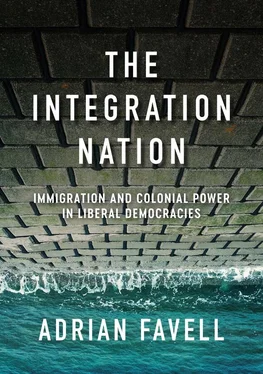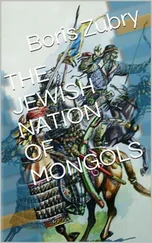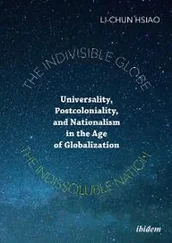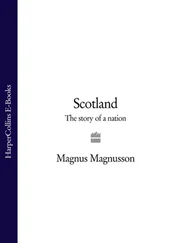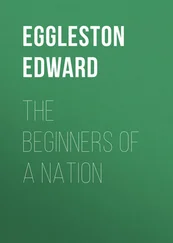This key point – about how integration defines what is immigration – can also be made in relation to how integration defines true or accomplished ‘citizenship’ as full membership. Two examples may make the point. Citizenship requires integration in order to fulfil its richer potential of signalling more than just formal legal status; it denotes a membership that is fully and equally recognized and functioning in that society (as a specific territorial unit). A new citizen who holds a passport and can claim the formal rights it bestows but who is facing racial discrimination at work, or who is practising violent ideological beliefs that break the laws of the country, is not conventionally considered to be integrated. By the same token, a culturally or nationally distinct newcomer who is successfully pursuing a career and can express their voice freely and equally in politics, yet who is not considered by their neighbours yet to be really British (or French, or whatever) is also not (quite) integrated – even if on all other technical measures they might be. Citizenship as fully accomplished and recognized membership matters to integration: there is a process of becoming taking place with an end point that can be attained, and which provides a normative benchmark of its success. The emancipatory mission implied in this moves integration from a pastoral to a governmental (biopolitical) logic. As we will see, integrating newcomers on these terms means that many are effectively set up to fail (see Anderson 2013).
The duly designated ‘immigrant’ who has been able to fully integrate as a ‘citizen’ affirms the successful national sovereignty of the nation-state over the complex social, economic and cultural processes that produced this outcome. It is an assertion of sovereign power strictly delimited to the transformation of selected foreigners into immigrants and then citizens that could have been seen otherwise as part of the emergence of some unbounded global or post-national society within or beyond a national territory. Transnational visions of society have no need to limit the discussion to selected ‘immigrants’ and will very likely seek to dissolve the artificially maintained political and legal lines between different forms of mobility or international movement. Indeed, they will also often seek to dissolve distinctions between ‘mobile’ and ‘immobile’ populations. In the linear definition, integration necessarily does limit the discussion to ‘immigrants’ who have moved and crossed an international border.
These definitional properties of integration in the standard view also offer a clue to the pervasive, often default, use of the term to encapsulate post-immigration processes in society. As the discussion suggests, the definitional use of integration implies investing these situations so described with a distinctive, encompassing, national territorial scale and border-drawing functionality that is not automatically attached to terms like ‘inclusion’ or ‘participation’. Moreover, while the narrower term ‘incorporation’ tends (like integration) to be linked to an accomplishment of bounded citizen membership, ‘acculturation’ could certainly be conceived as referring to something not strictly bounded and national in scale: such as acculturation into White Anglo-Protestant norms or a dominant Judeo-Christian culture (etc.). Integration has emerged as the pre-eminent concept, not only, as I will show, through sidelining other politically questionable terms at various junctures but also by swallowing up more precise or less comprehensive terms (other potential synonyms include absorption, accommodation, cohesion building, enfranchisement, unity from diversity, etc.). Among these terms, its competitive relation to ‘assimilation’ and ‘multiculturalism’ requires special attention, as does its problematic relation to ‘race’ (i.e., ‘anti-racism’) and ‘transnationalism’. I will discuss these in later chapters.
Ultimately, the power of integration is as an encompassing paradigm of social thought: intended here in the full sense of the term, as an embedded conceptual framework that determines society and its scientists’ view of normal functioning social reality, both consciously and unconsciously (Kuhn 1962). Its full origins are rarely spelt out: but, as I will show, its roots run back through the emergent West European immigration politics of the 1960s to 1980s, to modernist development theories emanating from the post-war triumph as a global power of the United States, to its high point in the structural functionalism of Talcott Parsons and his ‘theory of successful modernity’ (Alexander 1986). His highbrow American reconstruction of Durkheimian thought was itself grounded in a naturalization in social theory of a Kantian philosophy of the subject. Protagonists and modellers of ‘immigrant integration’ today – even those who seek to use the term as a neutral descriptive concept, or pragmatically at a very local scale – may only be dimly aware of this theoretical genealogy and the colonial modernist ends to which it was put, but they are bound by its implications and history.
The political demography I am sketching here is grounded in a broader view of global society constituted by a potentially infinite range of human mobilities and diversities, which nationalizing conceptions of population, international migration and integration work to reduce, shape and demarcate into governable statuses, units and groups. In this section, I offer some clarification on my background assumptions on mobility, diversity and society beyond the nation-state, which inform my critique of conventional notions of immigration, integration and citizenship.
Firstly, it is worth noting in passing that the notion of political demography I present might be said to necessarily underpin more conventional understandings of the global system in terms of political economy. That is to say, there is a prior theoretical question of defining sovereign populations and border demarcation before we broach questions of international political economy – international relations, the balance of states and markets, national and international institutions of governance, and so on (see Bashford 2014). In a globalizing world, the normative possibility of sovereign nation-state-societies as more or less stable, bounded ‘population containers’ – the Westphalian system defined by essentially immobile ‘native’ citizenries, which may absorb limited numbers of ‘newcomer’ immigrants – needs to be settled first.
At the same time, there is a prior question to that of political demography: the issue of political ecology. This would concern how a distinctly Anthropocenic ‘modern’ society of ‘human’ individuals and humanly constructed institutions is able to demarcate itself as a separable domain of social and political thought from that of the ‘natural’ world, of ‘objects’ and other beings around and outside it (as famously analysed by Latour 2006). Completing this account, by embedding our critique of the political demography of liberal democracy in an account of its political ecology would, as Latour (2018) suggests, help fill out the fully realized notion of planetary society beyond that of (Anthropocenic) global society. In this book, I leave aside the question of political ecology, except for a brief excursus on the implications of the COVID pandemic in the closing section of the book.
In the geographical literature – where there is a strong influence of political ecology – mobilities are defined in a much broader way to include all kinds of non-human mobile objects, goods, virtual transmissions, cultural artefacts, ideas, flows of production, information, capital, waste and so on (Sheller and Urry 2006). This is all certainly relevant to both political economy and political ecology. However, in advance of a full theoretical account, the specific issue of political demography can be practically limited here to identifiable human mobilities since it still helps clarify an alternative way of looking at migration, travel, border crossings, population movements and cross-border transactions more generally, which is clearly transformative of the standard linear view of immigration, integration and citizenship (see also Cresswell 2006). The alternative view of political demography presented here also relates to the kinopolitics (politics of movement) identified by critical scholars similarly concerned with how states make migration visible and governable (Nail 2015; van Reekum 2019).
Читать дальше
